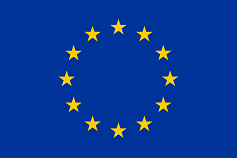The project activities have been organized into eleven work packages with clearly defined objectives and responsibilities for each specific partner.
Definition of common protocols and consulting end-users’ needs. Establish links with other projects
Identification and characterization of wild olives and establishment of shared germplasm banks
Characterization of valuable olive domesticated and wild genotypes traits
Assessing the genetic control of valuable characters in olive and development of new techniques for speeding up breeding process
Climate change effects prediction and strategies to face them: Genetic X Environment
Development of the GEN4OLIVE user-friendly interface: database and apps
Pre-breeding specific calls for SMEs involvement
Co-creation and capacity building
Communication, dissemination and results exploitation
LEADER: University of Córdoba
WP1 is considered the backbone of GEN4OLIVE project. The communication with end-users and with other projects, and the definition of harmonised protocols are crucial actions for building the framework of the overall intervention. The estimated number of olive genotypes that will be evaluated is around 1.500 (i.e. 500 domesticated varieties found in the five World Olive Germplasm Banks that participate in GEN4OLIVE and 1.000 more wild and ancient olive genotypes). WP1 will lead to the optimisation of the protocols and methodologies that the following WPs will undertake to ensure the soundness of the results.
LEADER: University of Granada
Wild Olea europaea resources remain largely unsampled and uncharacterised. However, wild populations are the main reservoir of genetic diversity in O. euroepaea and should be taken into account as a major resource to counter genetic erosion. Moreover, given their wide ecological and phenotypic variability, they are likely to harbour genes of interest, potentially adaptive under drastic environmental shifts such as those brought on by climate change. The ultimate objective of this WP is to make the wild diversity of O. europaea available to breeders.
LEADER: University of Córdoba
Through this WP, we will be able to select the most suitable olive genotypes for current and future olive breeding programs and, besides, we will be able to utilise new techniques and knowledge for speeding up the breeding process. The olive varieties candidates to be used as progenitors for breeding programs will be selected based on their traits/characters in four main aspects: a) resilience to extreme environmental conditions to face climate change effects; b) resistance to different pests and diseases (Xylella, Verticillium,
LEADER: University of Córdoba
WP4 will be focused on GEN4OLIVE’s contribution to accelerate the breeding process of olive trees. The Consortium will determine the genetic features that are linked to positive agronomical traits in potential new varieties. Special attention will be paid to genes related to resistance to diseases, drought resilience and shortening the juvenile phase of olive plant. Also, we will study the effect of progenitor’s gender in the transmission of the desired characters during breeding (female and/or male role in the directed crossing). Additionally, new techniques and markers will be applied to short the juvenile phase to accelerate and reduce the costs of breeding process.
LEADER: DEMETER
Through WP5 we will develop strategies to face the climate change effects and other associated risks that are threatening the olive growing sector, thus making feasible the assessment of Genotype x Environment (G x E) interaction. So, a set of 30 common olive varieties will be studied and analysed in the five Germplasm Banks that participate in this project. Then, based on the obtained results and statistical comparison, we will identify the G x E interaction and predict the possible effects of different future climate change scenarios. Based on these predictions and results obtained in previous WPs, we will design the most suitable breeding programs that will be urgently needed to tackle these challenges in the near future.
LEADER: University La Sapienza
WP6 will provide an easily accessible and user-friendly software interface to greatly increase accessibility and usefulness of GenRes data to end-users. This smart interface is a crucial component because it will not only serve as the main storage point for data produced by this project (i.e. olive varieties, olive diseases, breeding information, etc.), but will process these data into meaningful and concise information that will support different types of end-users, ranging from experts on the field to non-experts. This WP will also employ Machine Learning techniques to provide fast and robust solutions to olive disease and olive variety recognition by observation of photographic images.
LEADER: Fundación Corporación Tecnológica de Andalucía
This WP is aimed to foster the involvement of SMEs (i.e. olive farmers, breeders, nurseries and olive table/olive oil producers) in olive-related pre-breeding activities. These activities will be funded by GEN4OLIVE through the launching of two specific open calls, which will offer “Innovation vouchers” with the purpose of:
LEADER: FOCOS
Within this WP, we aim at engaging key stakeholders in the project implementation to push our findings and recommendations at the highest level, positively impacting on the economic and political sphere. Additionally, we will accelerate the generation of new skills and capacities in all actors involved, fostering the practical application of the project findings. Special attention will be paid to women and young farmers in these activities, to enhance their important role within the olive and olive-related sectors.
LEADER: Galpagro
To achieve the aim of maximising the project’s impacts and spreading its results amongst its target groups, GEN4OLIVE has foreseen mechanisms that include the deployment of a great range of dissemination and communication activities. Besides, a Results Exploitation Plan will be prepared and updated along the life of the project with the aim establishing a common formula for the whole Consortium to identify potential exploitable results, potential stakeholders and defining the exploitation paths.
LEADER: University of Córdoba
GEN4OLIVE is a highly complex project to be managed due to the high number of partners with a high diversity of profiles and a notable presence of non-EU countries, and the two open calls to support SMEs involvement in pre-breeding activities. WP10 aims to overcome all these challenges while facilitating the cooperation and coordination between partners and maintaining strict control of regular achievements of the project’s objectives.
LEADER: University of Córdoba
In base of the GEN4OLIVE Consortium ethic self-assessment and the assessment done by the independent ethics experts during the Ethics Screening process. The objective is to ensure compliance with the ethics requirements set out in this work package.
WP1 is considered the backbone of GEN4OLIVE project. The communication with end-users and with other projects, and the definition of harmonised protocols are crucial actions for building the framework of the overall intervention. The estimated number of olive genotypes that will be evaluated is around 1.500 (i.e. 500 domesticated varieties found in the five World Olive Germplasm Banks that participate in GEN4OLIVE and 1.000 more wild and ancient olive genotypes). WP1 will lead to the optimisation of the protocols and methodologies that the following WPs will undertake to ensure the soundness of the results.
Wild Olea europaea resources remain largely unsampled and uncharacterised. However, wild populations are the main reservoir of genetic diversity in O. euroepaea and should be taken into account as a major resource to counter genetic erosion. Moreover, given their wide ecological and phenotypic variability, they are likely to harbour genes of interest, potentially adaptive under drastic environmental shifts such as those brought on by climate change. The ultimate objective of this WP is to make the wild diversity of O. europaea available to breeders.
Through this WP, we will be able to select the most suitable olive genotypes for current and future olive breeding programs and, besides, we will be able to utilise new techniques and knowledge for speeding up the breeding process. The olive varieties candidates to be used as progenitors for breeding programs will be selected based on their traits/characters in four main aspects: a) resilience to extreme environmental conditions to face climate change effects; b) resistance to different pests and diseases (Xylella, Verticillium,
WP4 will be focused on GEN4OLIVE’s contribution to accelerate the breeding process of olive trees. The Consortium will determine the genetic features that are linked to positive agronomical traits in potential new varieties. Special attention will be paid to genes related to resistance to diseases, drought resilience and shortening the juvenile phase of olive plant. Also, we will study the effect of progenitor’s gender in the transmission of the desired characters during breeding (female and/or male role in the directed crossing). Additionally, new techniques and markers will be applied to short the juvenile phase to accelerate and reduce the costs of breeding process.
Through WP5 we will develop strategies to face the climate change effects and other associated risks that are threatening the olive growing sector, thus making feasible the assessment of Genotype x Environment (G x E) interaction. So, a set of 30 common olive varieties will be studied and analysed in the five Germplasm Banks that participate in this project. Then, based on the obtained results and statistical comparison, we will identify the G x E interaction and predict the possible effects of different future climate change scenarios. Based on these predictions and results obtained in previous WPs, we will design the most suitable breeding programs that will be urgently needed to tackle these challenges in the near future.
WP6 will provide an easily accessible and user-friendly software interface to greatly increase accessibility and usefulness of GenRes data to end-users. This smart interface is a crucial component because it will not only serve as the main storage point for data produced by this project (i.e. olive varieties, olive diseases, breeding information, etc.), but will process these data into meaningful and concise information that will support different types of end-users, ranging from experts on the field to non-experts. This WP will also employ Machine Learning techniques to provide fast and robust solutions to olive disease and olive variety recognition by observation of photographic images.
This WP is aimed to foster the involvement of SMEs (i.e. olive farmers, breeders, nurseries and olive table/olive oil producers) in olive-related pre-breeding activities. These activities will be funded by GEN4OLIVE through the launching of two specific open calls, which will offer “Innovation vouchers” with the purpose of:
Within this WP, we aim at engaging key stakeholders in the project implementation to push our findings and recommendations at the highest level, positively impacting on the economic and political sphere. Additionally, we will accelerate the generation of new skills and capacities in all actors involved, fostering the practical application of the project findings. Special attention will be paid to women and young farmers in these activities, to enhance their important role within the olive and olive-related sectors.
To achieve the aim of maximising the project’s impacts and spreading its results amongst its target groups, GEN4OLIVE has foreseen mechanisms that include the deployment of a great range of dissemination and communication activities. Besides, a Results Exploitation Plan will be prepared and updated along the life of the project with the aim establishing a common formula for the whole Consortium to identify potential exploitable results, potential stakeholders and defining the exploitation paths.
GEN4OLIVE is a highly complex project to be managed due to the high number of partners with a high diversity of profiles and a notable presence of non-EU countries, and the two open calls to support SMEs involvement in pre-breeding activities. WP10 aims to overcome all these challenges while facilitating the cooperation and coordination between partners and maintaining strict control of regular achievements of the project’s objectives.
In base of the GEN4OLIVE Consortium ethic self-assessment and the assessment done by the independent ethics experts during the Ethics Screening process. The objective is to ensure compliance with the ethics requirements set out in this work package.

This project has received
funding from the European
Union’s Horizon 2020 research
and innovation programme
under grant agreement No. 101000427

Login to your account

Login to your account